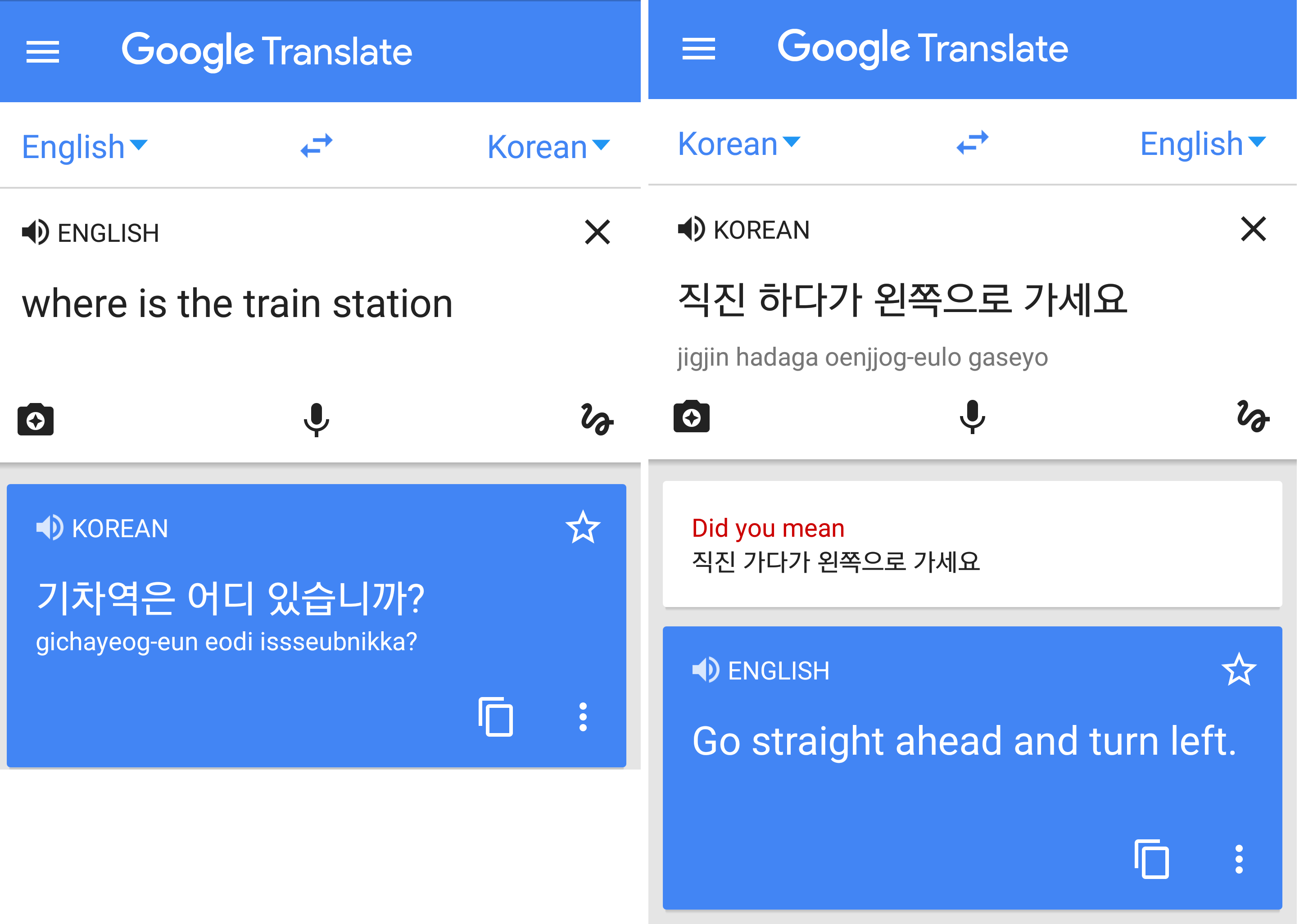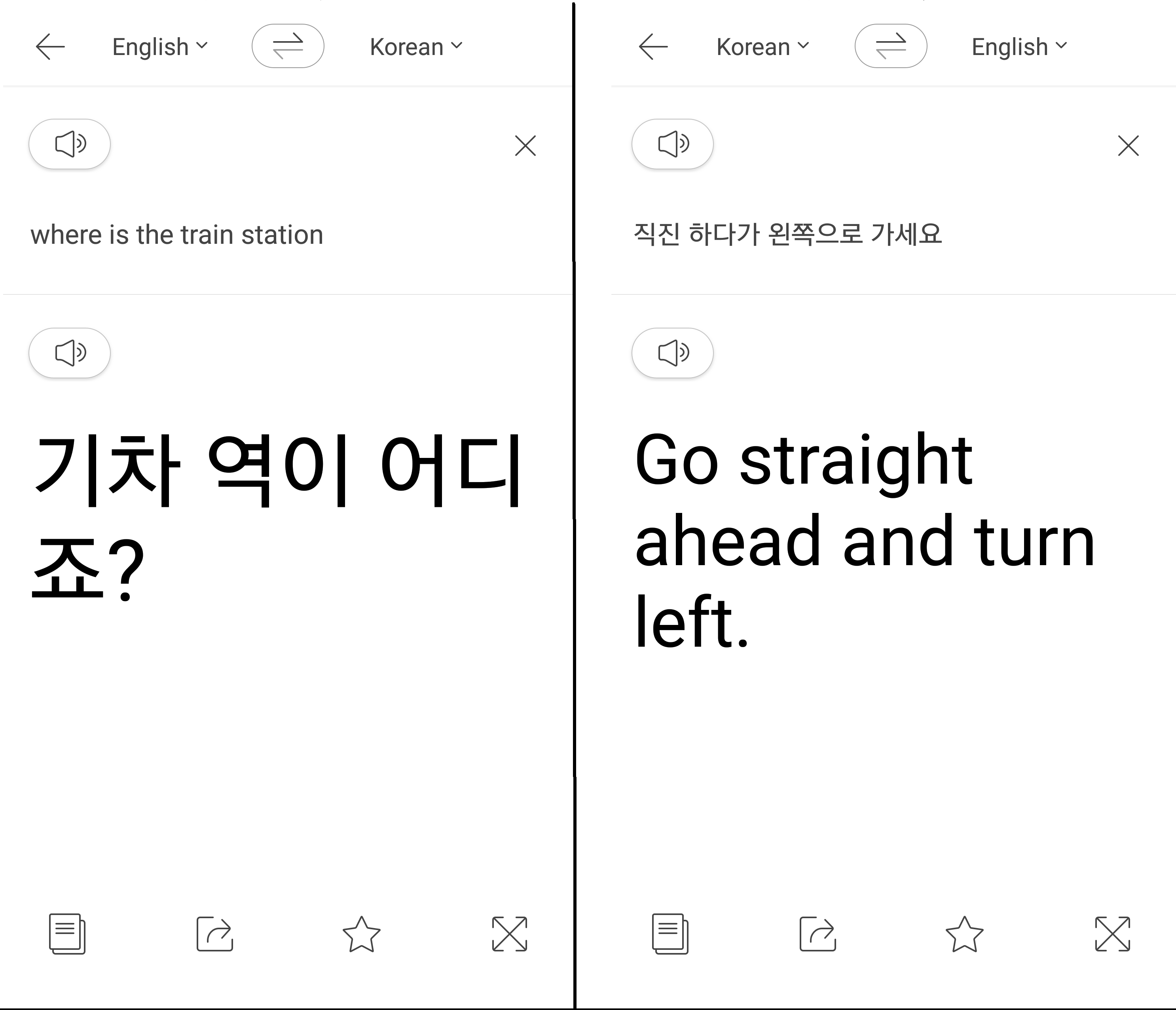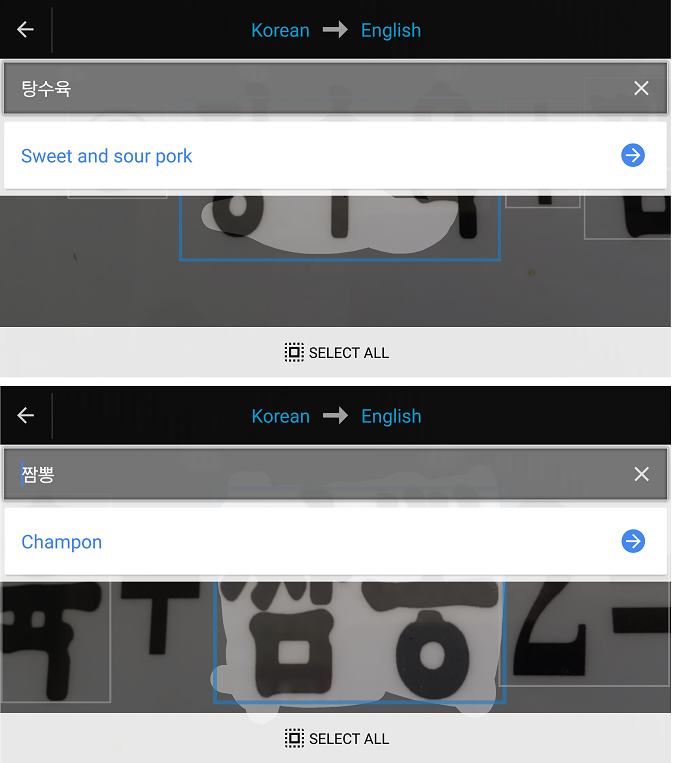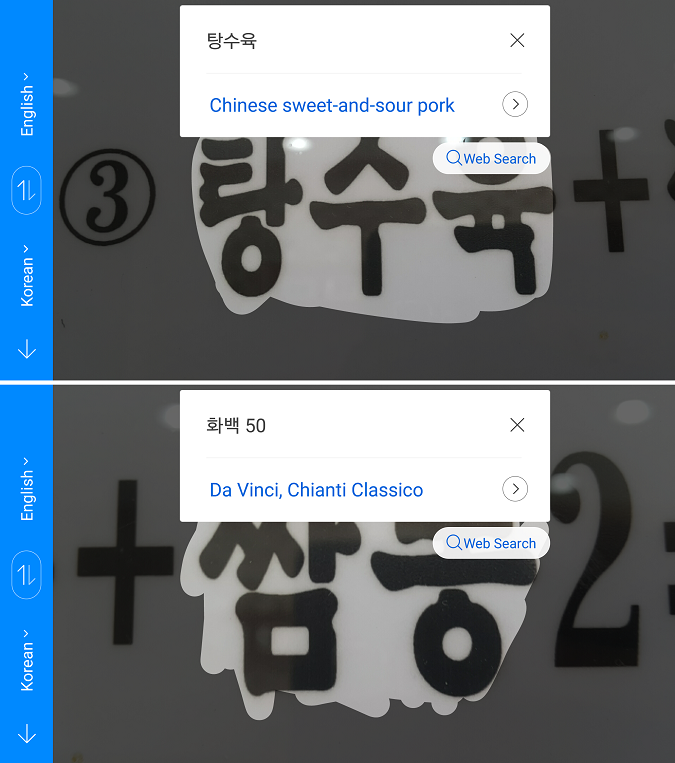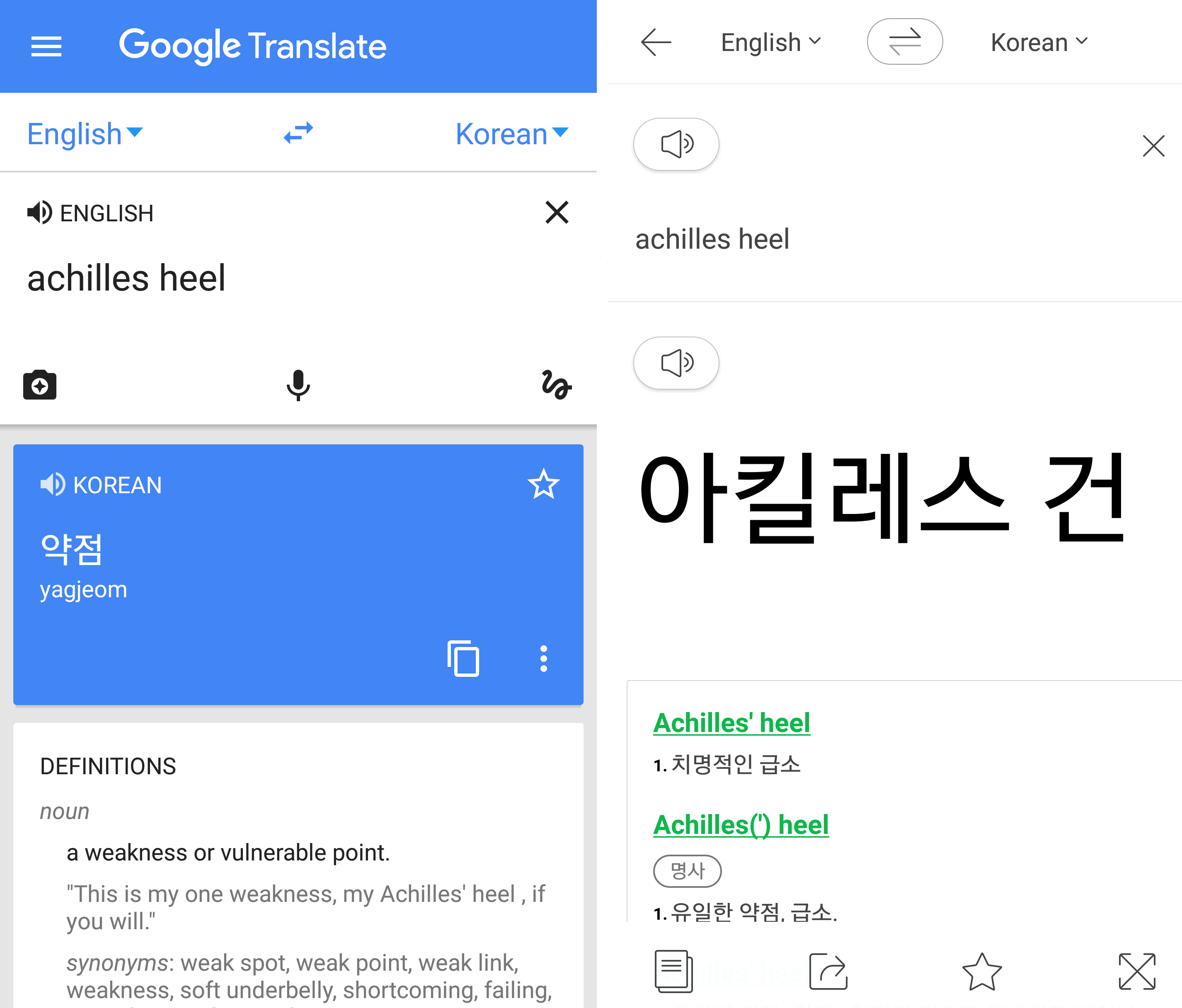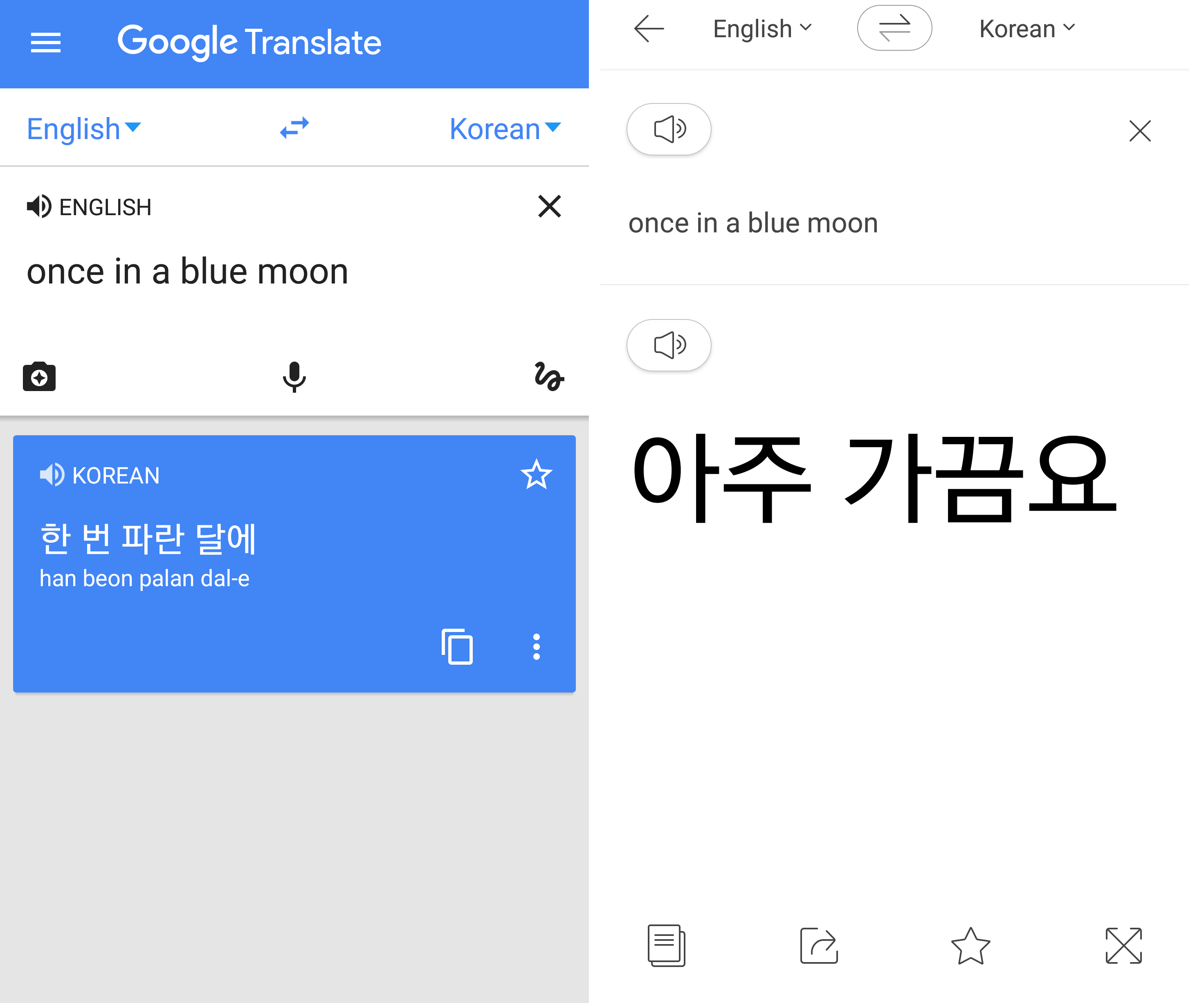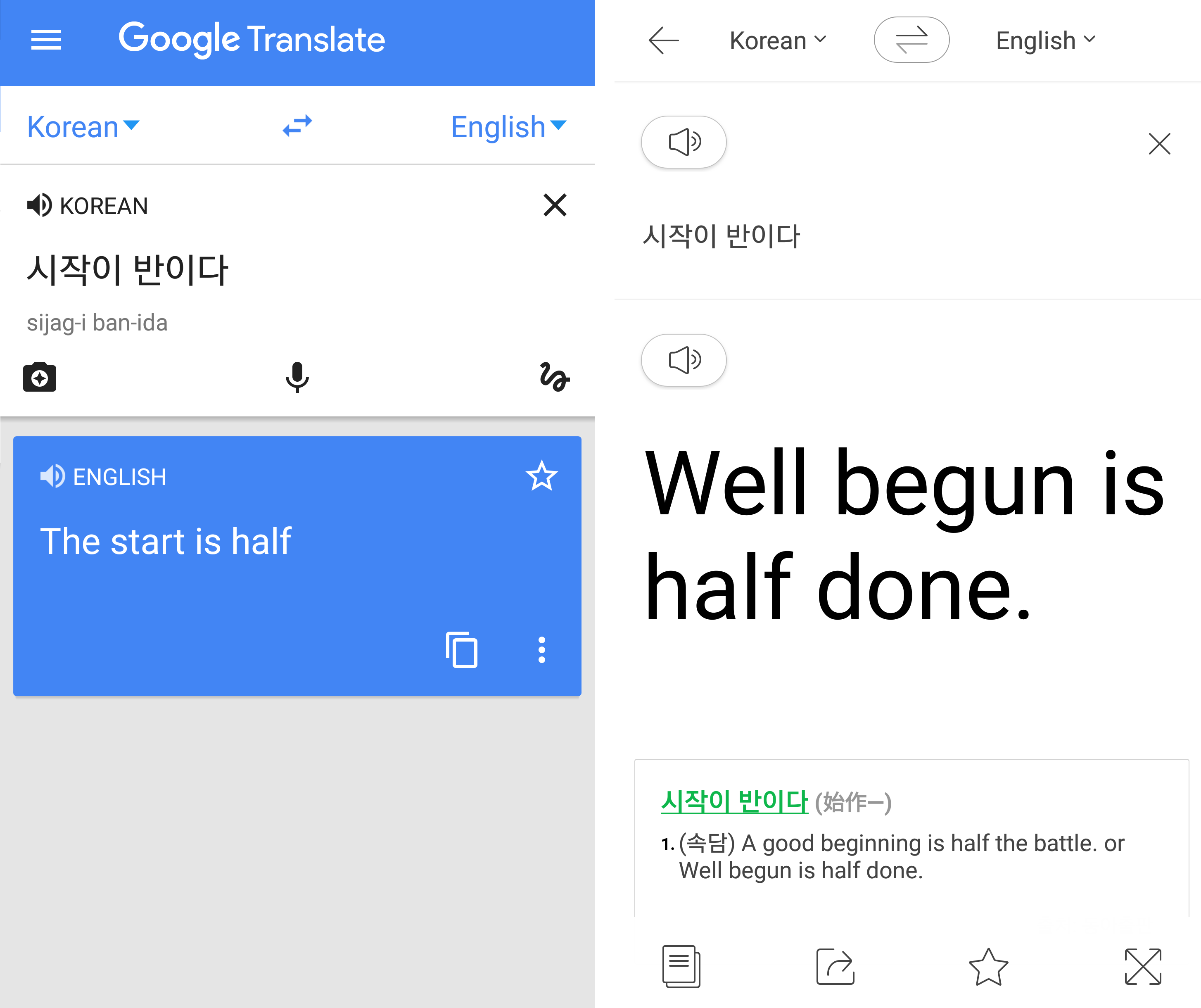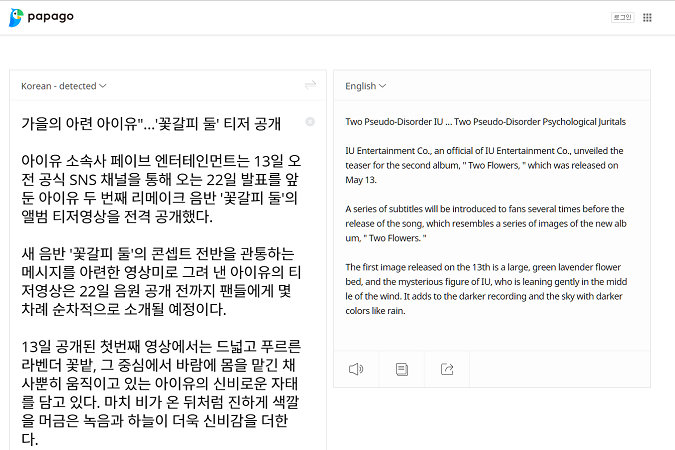|
After putting both apps to the test in everyday situations, we found that the app translation services from the two technology giants offer genuinely impressive translation services that are likely to be very useful for people in Korea who don't speak Korea.
If you live in Korea but don't speak Korean, there are likely to be many occasions where the help of an accurate translation would be really useful.
The most well-known translation app is probably Google Translate. It has tons of language pairings and the ability to translate both text and sound, as well as words from pictures.
Korean company Naver also provide a translation app. It is called Papago and is very similar to Google Translate. While it offers fewer language pairings, as it is made by a Korean company, would that suggest that it will be able to translate to and from Korean more accurately than Google?
We performed a few test in everyday situations to see just how accurate each app is. Obviously, both apps offer translation in significantly more situations than the ones listed below and the results you experience when actually using the app may differ compared to the results we found.
Asking for directions
Anyone who has been traveling in a foreign country likely knows about the struggle of finding new things. While hand signals can often be used, wouldn't it be great if the app could provide an accurate translation for you when asking for directions?
We tested how each service translates the simple question "Where is the train station" and the answer "down the street to the left"
Google
Google accurately translated both the question and the answer into grammatically perfect sentences.
Papago
Papago also translated both the questions and answers into perfect sentences.
One slight difference is that while Google used a very formal form of Korea, Papago used a more commonly used form. According to our Korean office staff, the Papago version sounds slightly more natural.
Either way, the good news is that we don't think that you would struggle to find out how to get to where you are going using either app!
Items on a menu
One impressive feature that both these services offer is the ability to take a picture of words in Korean and have them translated into English. This obviously has loads of potential to be a really useful service.. if it is accurate.
To test this feature, we tried it out at lunch on the menu of a local restaurant near our offices. Here are the results!
Google Translate
Google actually offer an instant translation service that superimposes the translated words over the original on your camera screen. While it is hugely impressive, it didn't actually work for the menu at the restaurant we were in.
Nonetheless, it was easy enough to take a picture and then select the area with the word for Google to translate.
Google accurately translated the first food item but, despite correctly guessing the text, it was unable to accurately translate the second item.
Papago Translate
Like Google, Papago was able to translate the first food item fairly easily. However, it couldn't accurately recognize the text in the following item meaning it was unable to translate it correctly.
However, one plus point was that was that when you put 짬뽕 into the app itself manually, it offers the accurate dictionary definition of 'Chinese style noodles with vegetables and sea food.'
Idioms
While not necessarily that useful in day-to-day situations, we decided to test idioms because it would surely be one of the hardest things for the programs to accurately work out. After all, how would they know what was an idiom and what was simply a literal statement?
Overall, Papago was probably slightly more accurate with the translations.
English to Korean
Achilles heel
The first idiom we chose was 'Achilles heel' (a weak point) and both programs performed well. Google translated the idiom into '약점' which means 'a weak point'.
While Papago literally translated the idiom, it also carried a dictionary entry underneath explaining that Achilles heel means a weak point. It should also be noted that our Korean office staff said that most people would understand the Korean translation to mean 'a weak point.'
Once in a blue moon
The idiom 'once in a blue moon' (something that happens very rarely) saw Papago perform better than Google. Google translated the phrase literally and left no suggestion as to the implied meaning of the phrase 'once in a blue moon.'
On the other hand, Papago translated the phrase to '아주 가끔요' which means very rarely. This is pretty much the exact meaning of 'once in a blue moon.'
Korean to English
시작이 반 ( A Korean idiom that means something along the lines of 'starting is the hardest part')
In this test, Papago once again won out. While Google literally (and still fairly impressively) translated the phrase to 'the start is half,' Naver recognized the fact that the phrase was an idiom. Not only did it then translate this accurately, but it even used the equivalent English language idiom!
원숭이도 나무에서 떨어질때가 있다 (A phrase that means something like 'even experts make mistakes')
Google Translate once again failed to recognize the phrase as an idiom and translated it literally (again, very accurately) to be 'there are times when monkeys fall from trees.'
As with the previous translation, Pagapgo recognized the phrase as an idiom and translated it into 'Even Homer sometimes nods.' The problem though is that I have never heard this idiom before.
After searching for this phrase I discovered that this is a real English language idiom that means almost exactly the same as the Korean idiom. However, I can't help but feel that in this case the idiom they chose was a bit too obscure and many people wouldn't necessarily get the meaning on the original phrase.
Simple K-pop article
For the next test, we took things up a level and decided to try to translate the first few sentences of an article.
We chose an entertainment article as not only is a k-pop article something we think many people will want to translate, but also because an entertainment article is likely to be simpler than something heavier.
The article we chose was about the release of a teaser of an upcoming album by singer IU. Important information contained in the article is that on the morning of Sept. 13 Fave Entertainment released a teaser of her second remake album 22 days before its original release.
Let's see how each translation service performed!
First up Google.
Well, in all honesty, Google's translation is remarkably readable. While certainly not completely accurate, it is more than easy enough to get the main information of the story, mainly that the teaser for IU's new album has been released 22 days ahead of schedule.
Papago
Pagago's translation is by no means awful, although it does mix up some of the most important information.
While they get across the message that a teaser album is being released, they don't say whose album it is. They also mix the tenses up suggesting that a teaser has been unveiled for an album that was released in May.
Conclusion
After performing these tests it is safe to say that neither app is perfect and it may be a while before translation software can accurately translate long articles and complicated idioms.
However, as someone who has used these apps for a long time, I am also genuinely startled at how accurate they are becoming and they seem genuinely useful for simple sentences.
In fact, I could easily see myself using these apps to help with simple conversations and travel problems if I was someone who was just arriving in Korea and didn't understand any of the language.
|










